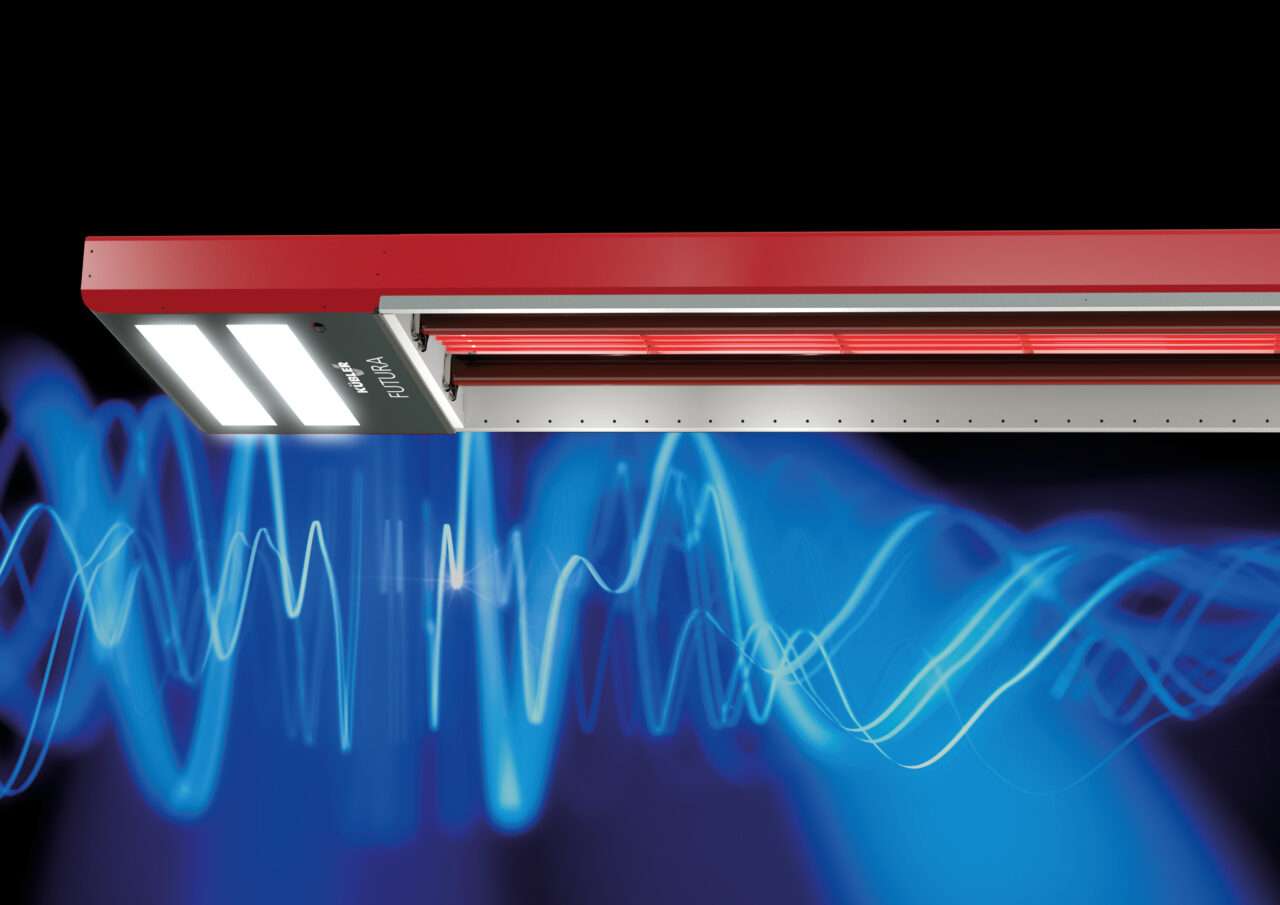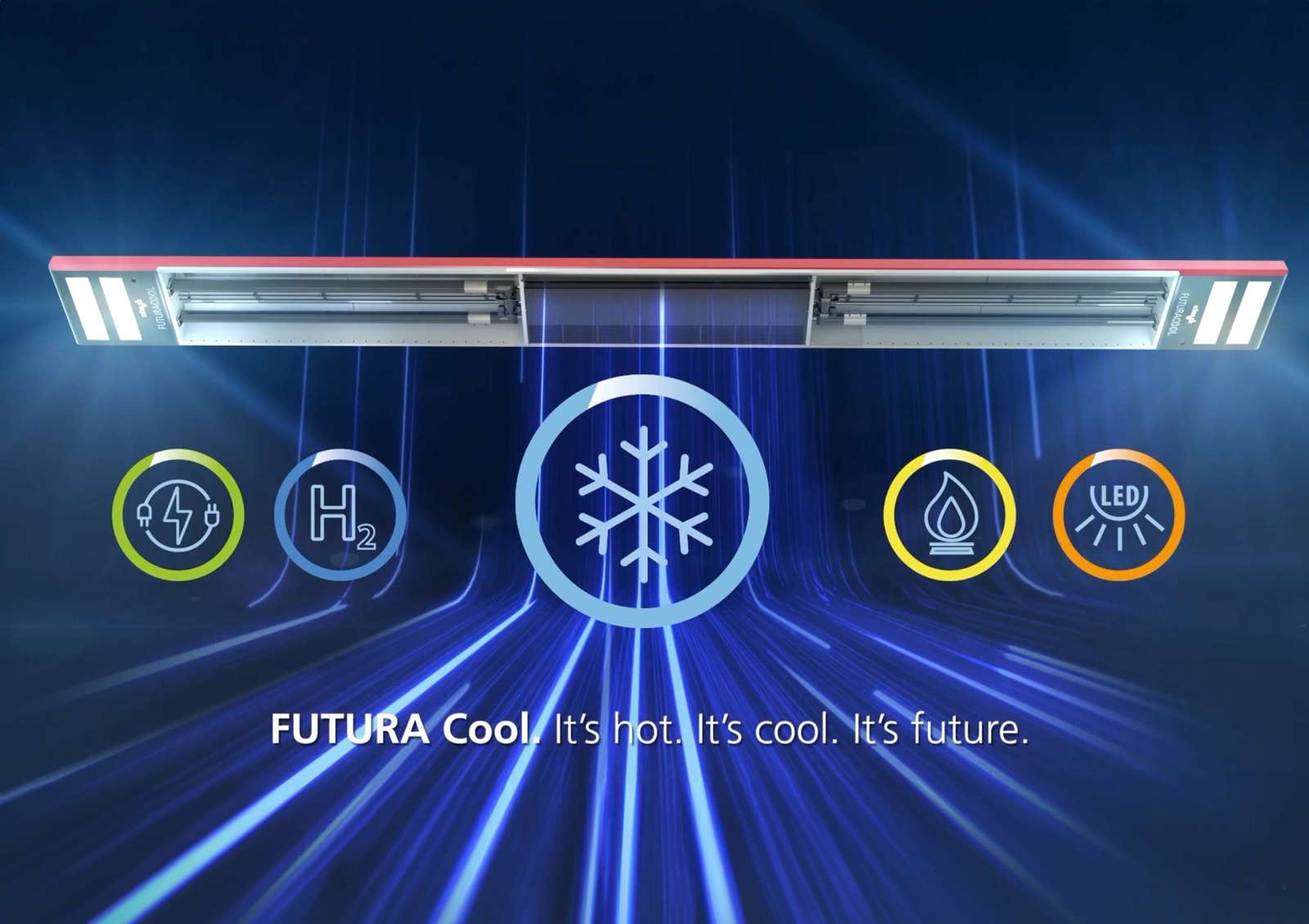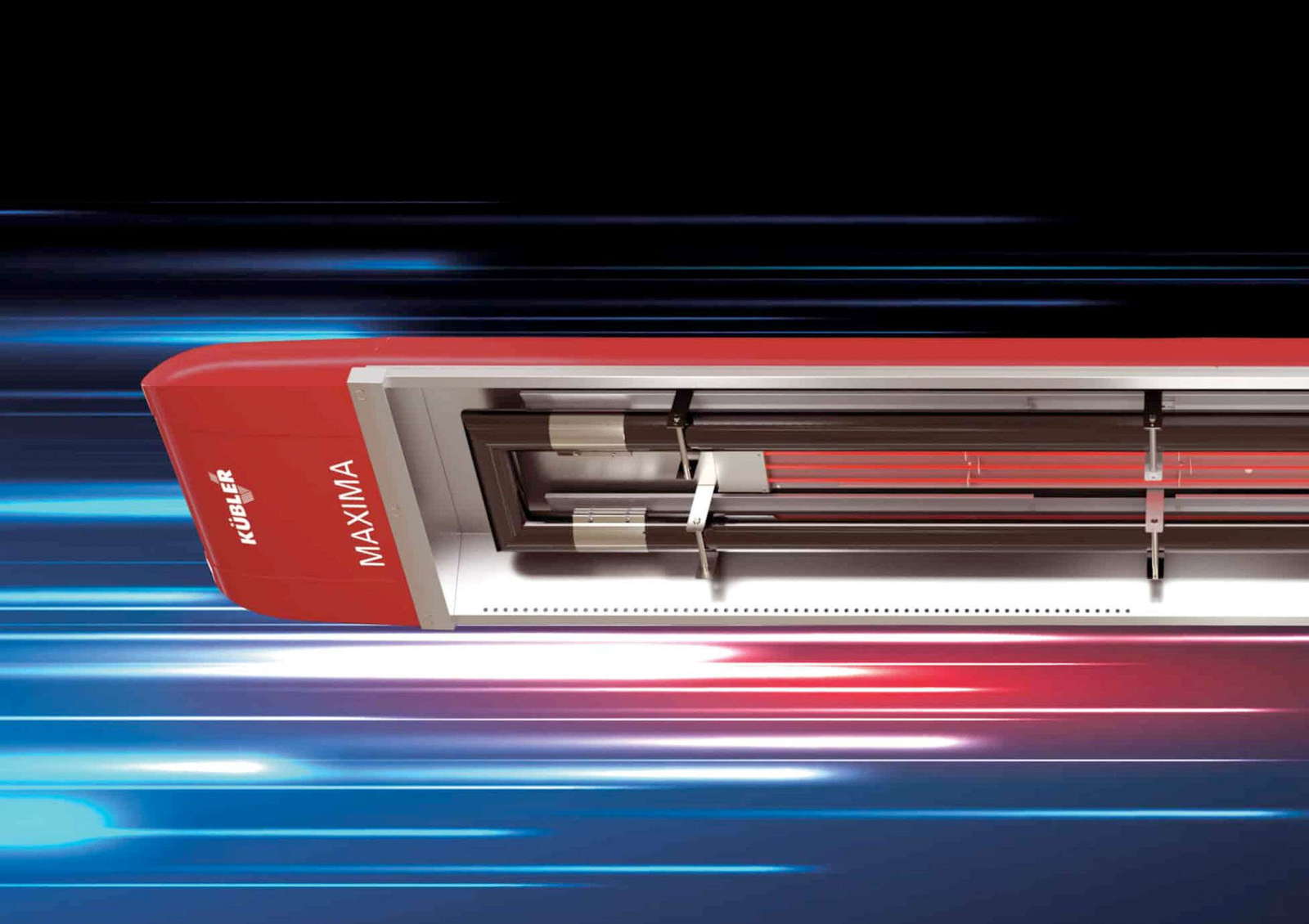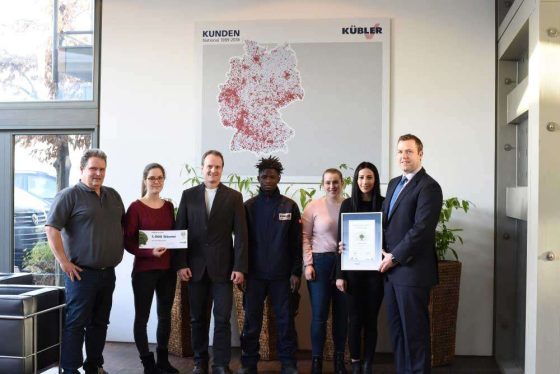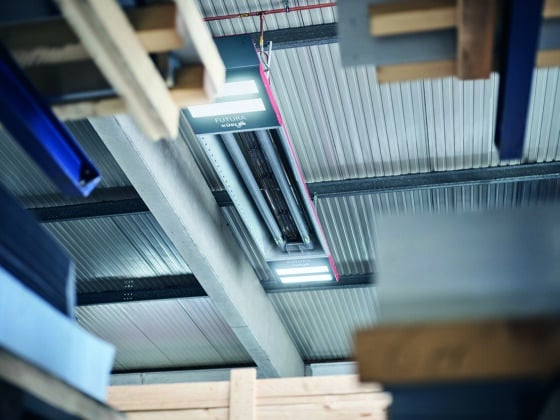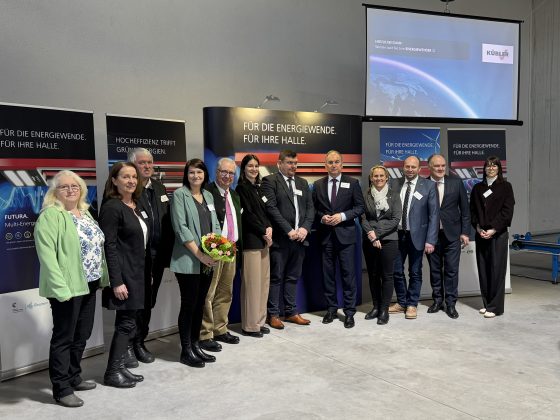Energy efficiency 2.0: AI revolution in hall heating technology
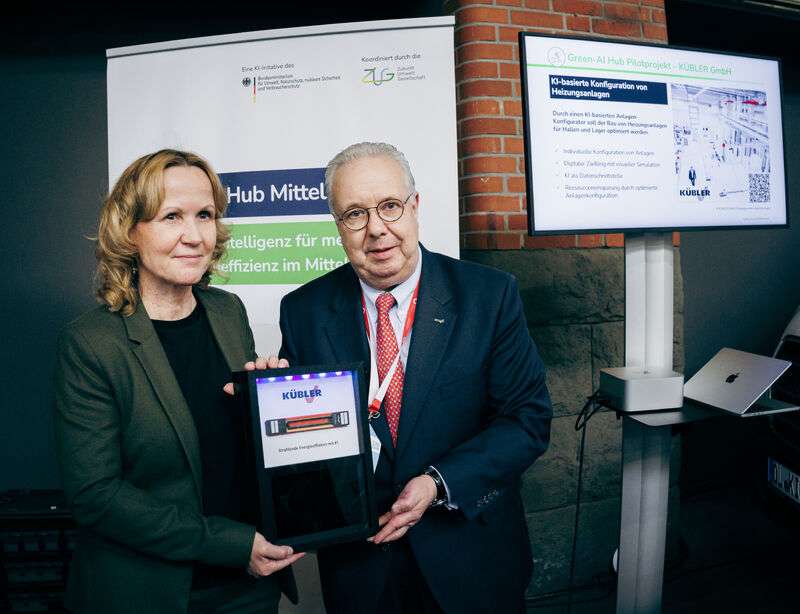
"The fusion of artificial intelligence with advanced, dynamic infrared indoor heating systems marks a revolutionary era in energy efficiency and individually adapted indoor climates," says Thomas Kübler, founder and managing partner of KÜBLER GmbH. The rapid responsiveness of infrared heating compared to slower systems, such as a heat pump in combination with hydraulics, represents a decisive advantage. This dynamic is reinforced by the optimized integration of artificial intelligence, which ensures more efficient comfort with minimal energy losses. The significant role of this decisive advantage is particularly evident in intelligent controls, which enable immediate and customized adaptation to individual user requirements such as different temperature zones in a hall building, even without partition walls. The pilot project at KÜBLER GmbH uses an AI-based system configurator to optimize the construction of heating systems for halls and warehouses.
The successful pilot project is presented on the Green-AI Hub website under the title "AI-based configuration of heating systems":
Construction of hall heating systems
KÜBLER manufactures systems that heat halls in a particularly energy-efficient manner. The portfolio is supplemented by device variants with lighting, cooling and ventilation concepts as well as thermal-supported heating. The latest generation of infrared heaters (FUTURA and MAXIMA E-Hybrid) use biogas, liquid gas, hydrogen (components), natural gas or electricity. Depending on price or availability, it is possible to switch back and forth between these energy sources.
Individual configuration of systems
3D models of the halls are used for planning to ensure the efficient use of heating systems. Materials made of metals, plastics, cardboard, glass fibers and composite materials are used in the production process. The company has various individual solutions for configuring, planning and preparing quotations for systems, such as calculating the heating load and selecting the type and number of units. Information on the systems, such as CAD plans and operating data, is available in various formats at different locations.
Digital twin with visual simulation
The pilot project of the Green-AI Hub Mittelstand therefore links the different pieces of information for the first time via a digital twin. This analyses the data, which enables enormous savings potential for future systems by revealing oversizing and optimizing the technical coordination of individual system components.
The digital twin is supplemented by mixed reality glasses that visualize the system. This allows planned installations to be checked visually in advance on site, e.g. in an assembly hall, in order to identify the most suitable installation of the hall heating based on experience and visual feedback. This can be adjusted again later in the process if necessary. The visual simulation can be used to identify any direct savings potential, such as the fact that fewer or smaller systems are required than originally assumed. Indirect savings potential can also be identified. For example, it is possible to determine whether an additional appliance is required. This would allow the heating appliances to run in their efficient operating mode for longer and be used in a more resource-friendly, durable and generally more sustainable way.
AI as a data interface
The digital twin enables resource savings to be achieved in various phases. A digital product passport within the digital twin lists recyclable components, a step towards a circular economy. Savings can also be achieved during operation. Simulation and mixed reality visualization scenarios can be used to reduce the number or size of systems used. It is also possible to avoid peak operation using the digital image of the appliances in the digital twin and knowledge of appliance usage. This protects the appliances and reduces energy consumption in the form of electricity and gas.
The pilot project considers the hall heating systems in an overall context (Smart Living, Smart City, Industry 4.0 etc.) and includes other sensors and information sources (e.g. hall activity) in the analysis (shared data space). This makes it possible to formulate more precise assessments of usage patterns and types, and therefore holistic predictions. A standardized data interface in the digital twin bundles all data that is important for operations.
Optimized system configuration saves resources
The use of AI not only has an impact on the resource efficiency of the company, but also on the resource efficiency of the customers where the corresponding infrared heaters from KÜBLER have been or will be installed. This also applies retroactively to infrared heaters that have already been installed. For example, maintenance can be adapted to avoid system failure, cost-intensive, unscheduled repairs, wasted resources for travel or cost-intensive consequential damage. Improved planning and dimensioning of new halls allows usage data to be collected and the size and equipment of similar halls to be better planned in future. In addition, AI and the digital twin of the heating systems are being developed and continuously improved. In the pilot project, material, energy and CO2 saved.
The BMUV's Green AI Hub for SMEs
The Green-AI Hub Mittelstand (www.green-ai-hub.de) is an AI initiative of the Federal Ministry for the Environment (BMUV). It supports companies in implementing their own AI projects with the aim of saving resources and materials.
- Ludwigshafen. KÜBLER employees have been committed to environmental protection for 30 years. From the very beginning, the leading manufacturer of hall heating systems has focused on energy saving, CO2 reduction and sustainability. Now KÜBLER is donating 1,000 trees for environmental protection.
- The hall heating specialist KÜBLER GmbH has been nominated in the "Premier" category for the "Großer Preis des Mittelstands" 2024. Another great success for the medium-sized, innovation-driven company based in Ludwigshafen am Rhein.
- A few months ago, KÜBLER was honored in the Premier finalist category - as one of only five companies out of 4,600 nominated for the SME Grand Prix. Now the renowned hall heating specialist has been nominated again: 2025 for the highest category, the Premier. For over 35 years, the Ludwigshafen-based company has been shaping the market with innovative infrared technologies that combine energy efficiency, cost-effectiveness [...]
- We had the honor of welcoming the Ambassador of the Federal Republic of Germany in Austria, His Excellency Vito Cecere, to the inauguration ceremony of the first RES project in Austria - together with other high-ranking representatives from politics, business and associations. First and foremost, the Managing Director of the German Chamber of Commerce in Austria (DHK) Thomas Gindele, the senior expert for renewable energies at the German [...]
